Make UP TO TWICE Your Money* INVESTING IN
Multifamily Housing
320WN
by IMAIM CAPITAL
New Multifamily Development in Wynwood, Miami
Investment Opportunities Available Through Private Placements Starting At $250,000
We'll never share your information with anyone

75+ Units
Owned, Managed and Producing Revenue in Miami
$25 MM+
On Assets Under Management
$4 MM+
Paid to Our Investors In Distributions
*Projected Equity Multiplier: 1.9x - 2.3x. Subject to deal's performance.

Are you looking for Investment Opportunities?
It's no secret that investing in Real Estate is one of the most proven ways to create wealth, especially, in Commercial Real Estate.
However, what is not so obvious is where to put this money to work, who can be trusted with these resources, and ultimately, how to correctly evaluate what investment opportunities are good, and which ones are not.
There are plenty of factors that come into play to make an investment successful. From truly understanding the value proposition of the opportunity to having confidence in the sponsor of the deal, all the way to identifying potential operating risks and related issues to real estate investments...
Sounds like a lot, right?
That's when IMAIM CAPITAL comes as a handy, trustworthy, and experienced ally that provides proven solutions to individuals and organizations looking to make their investment portfolio grow. With a unique approach centered on improving the communities we work with and a successful track record over a decade in the Florida market, IMAIM CAPITAL is the ideal partner that can help you make your investment not only a matter of producing outstanding monetary returns but also creating a long-lasting legacy on the lives of everyone involved.
-Nathaniel Korn, Founder & CEO of IMAIM CAPITAL
Make UP TO TWICE Your Money* INVESTING IN
Multifamily Housing
320WN
by IMAIM CAPITAL
New Multifamily Development in Wynwood, Miami
Investment Opportunities Available Through Private Placements Starting At $250,000
We'll never share your information with anyone

75+ Units
Owned, Managed and Producing Revenue in Miami
$25 MM+
On Assets Under Management
$4 MM+
Paid to Our Investors In Distributions
*Projected Equity Multiplier: 1.9x - 2.3x. Subject to deal's performance.
Are you looking for Investment Opportunities?

It's no secret that investing in Real Estate is one of the most proven ways to create wealth, especially, in Commercial Real Estate.
However, what is not so obvious is where to put this money to work, who can be trusted with these resources, and ultimately, how to correctly evaluate what investment opportunities are good, and which ones are not.
There are plenty of factors that come into play to make an investment successful. From truly understanding the value proposition of the opportunity to having confidence in the sponsor of the deal, all the way to identifying potential operating risks and related issues to real estate investments...
Sounds like a lot, right?
That's when IMAIM CAPITAL comes as a handy, trustworthy, and experienced ally that provides proven solutions to individuals and organizations looking to make their investment portfolio grow. With a unique approach centered on improving the communities we work with and a successful track record over a decade in the Florida market, IMAIM CAPITAL is the ideal partner that can help you make your investment not only a matter of producing outstanding monetary returns but also creating a long-lasting legacy on the lives of everyone involved.
-Nathaniel Korn, Founder & CEO of IMAIM CAPITAL
Build Your Multifamily Real Estate Portfolio With Us!
Build Your Multifamily Real Estate Portfolio With Us!

Obtain Home Advantage!
We are local investors in Miami, FL with 15 years of experience & success investing in Multifamily Real Estate.

Access Exclusive Deals
Partner up in carefully picked deals. We look for the best risk/return profile while ensuring a positive community impact.

Enjoy Stress-Free Returns
With our "Vertically Integrated" approach, we take care of raising the funds, manage the properties, and lease the spaces.
Build Your Multifamily
Real Estate Portfolio
With Us!

Obtain Home Advantage!
We are local investors in Miami, FL with 15 years of experience & success investing in Multifamily Real Estate.

Access Exclusive Deals
Partner up in carefully picked deals. We look for the best risk/return profile while ensuring a positive community impact.

Enjoy Stress-Free Returns
With our "Vertically Integrated" approach, we take care of raising the funds, manage the properties, and lease the spaces.
Interested in Investing With Us?
Here is How It Works!
1
Learn About Investment Opportunities
Send an email or complete the contact page to learn more about Private Investment Opportunities
2
Request an Initial Qualification Call
Learn about our company, investment strategy goals, and if Private Investments are right for you.
3
Join Our Newsletter
Become part of our internal mailing list where you will be informed of investment opportunities, tips, updates, etc.
4
Schedule an Accreditation Meeting
Schedule a call with IMAIM CAPITAL to discuss any questions related to specific investments of interest and go over the Accredited Investor procedures.
5
Provide Investment Documentation
Complete the required Investor Questionnaire or application related to selected investment(s) and provide detailed information on the transfer of funds.
6
Conveyance
Watch your money at work and receive distributions, if applicable. You will now be our partner and have access to updates and operations of your investment.
Interested in Investing With Us?
Here is How It Works!
1
Learn About Investment Opportunities
Send an email or complete the contact page to learn more about Private Investment Opportunities
2
Request an Initial Qualification Call
Learn about our company, investment strategy goals, and if Private Investments are right for you.
3
Join our Newsletter
Become part of our internal mailing list where you will be informed of investment opportunities, tips, updates, etc.
4
Schedule an Accreditation Meeting
Schedule a call with IMAIM CAPITAL to discuss any questions related to specific investments of interest and go over the Accredited Investor procedures.
5
Provide Investment Documentation
Complete the required Investor Questionnaire or application related to selected investment(s) and provide detailed information on the transfer of funds.
6
Conveyance
Watch your money at work and receive distributions, if applicable. You will now be our partner and have access to updates and operations of your investment.
Frequently Asked Questions
What is Real Estate Private Equity?
Real Estate Private Equity (REPE) involves pooling capital from investors to acquire, develop, and manage real estate properties. These investments are typically made through private equity firms that specialize in real estate, aiming for higher returns through active management and strategic enhancements.
What is the Size of the Market Opportunity in Real Estate Private Equity?
The global real estate private equity market is substantial, with trillions of dollars invested in various property types such as residential, commercial, industrial, and mixed-use developments. The market continues to grow as institutional and individual investors seek to diversify their portfolios and achieve attractive risk-adjusted returns.
What Makes Real Estate Private Equity Attractive?
Real estate private equity offers an attractive risk-return profile by combining the potential for high returns with relatively lower volatility compared to public markets. This is achieved through hands-on management, strategic property enhancements, and leveraging market inefficiencies.
Why Does the Location of Real Estate Investments Matter?
The location of a property significantly impacts its value, rental income potential, and appreciation prospects. Investing in high-growth areas with strong economic fundamentals, such as job growth, population increase, and infrastructure development, can enhance returns and reduce risks. In our case, our Multifamily property investments in South Florida have performed very well over the years, and we believe our alternative investments can help investors reach their long term goals.
How Does Long-Term Investing Benefit Real Estate Private Equity Investors?
Long-term investing in real estate private equity allows investors to capitalize on property appreciation, rental income growth, and value-add opportunities. It also helps to weather short-term market fluctuations, providing a more stable and predictable return over time.
What is Under Allocation of Alternative Investments?
Under allocation refers to the phenomenon where many investors have a smaller proportion of their portfolio allocated to alternative investments, including real estate private equity, than recommended. This can lead to missed opportunities for diversification and higher returns that these investments can offer.
How Can Investors Understand Private Equity Investments?
Investors can understand private equity investments by learning about the investment strategies, risk-return profiles, due diligence processes, and performance metrics. Engaging with experienced advisors (such as IMAIM CAPITAL) and leveraging educational resources provided by private equity firms can also enhance understanding.
What Are the Key Risks Associated with Real Estate Private Equity?
Key risks include market risk, property-specific risk, liquidity risk, and operational risk. Market risk involves economic downturns affecting property values, while property-specific risks pertain to issues like vacancy rates and property management. Liquidity risk arises from the illiquid nature of real estate investments, and operational risk involves the execution of the business plan. With our Vertically Integrated Approach we reduce significantly property-specific risks.
What Are the Typical Returns in Real Estate Private Equity?
Returns in real estate private equity can vary widely based on the strategy, property type, and market conditions. However, investors often seek returns in the range of 8-20% per annum, depending on the level of risk and value-add potential.
How Can Investors Get Started with Real Estate Private Equity?
Investors can get started by identifying reputable real estate private equity firms, like IMAIM CAPITAL, understanding their investment strategies, and evaluating their track records. It's important to conduct thorough due diligence, assess alignment with personal investment goals, and consider the minimum investment requirements.
Join Our Newsletter To Receive
Investment Opportunities, Tips & Updates!
About Us
Hours of Operation:
9 AM - 5 PM EST // Monday - Friday
Contact
Phone: +1 786-384-5494
Email: [email protected]
